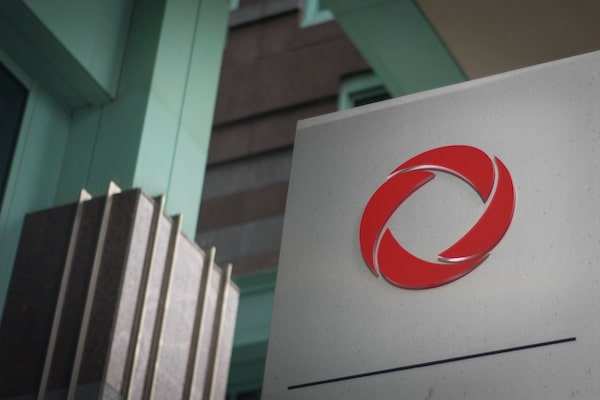
It cannot be overstated how much the Canadian economy relies on access to reliable digital technology and telecommunications services.Tijana Martin/The Canadian Press
Mark Wiseman is a Canadian investment manager and business executive, serving as a senior adviser to Lazard Ltd., Boston Consulting Group and Hillhouse Capital, and is the chair of Alberta Investment Management Corp. He was formerly the chief executive officer of Canada Pension Plan Investment Board and a senior managing director at BlackRock and chairman of its global investment committee. Follow Mark on Twitter.
The effects of COVID-19 have prompted us all to reconsider, re-examine and hopefully reinforce the sectors and technologies that are most critical to the success and well-being of Canada and its citizens.
While domestic manufacturing and access to resilient supply chains are likely the first areas that come to mind when thinking about what Canada ought to prioritize coming out of the pandemic, any Canadian employee or business leader who has been forced to work remotely since March, 2020, will also tell you that access to digital technology has become vitally important to their everyday life.
It cannot be overstated how much the Canadian economy relies on access to reliable digital technology and telecommunications services. Access to digital technology and services has even been argued to be a basic human right, as those without it are shut out of many opportunities in today’s modern and dynamic societies. It certainly is vital to Canada’s continued competitiveness in today’s global economy.
Rogers boardroom battle overshadows digital infrastructure deficit
This brings us to Rogers . It has more than 10 million wireless subscribers and its LTE network reaches approximately 96 per cent of Canada’s population. If Rogers were somehow to falter, it would cause a widespread and potentially severe shock to the Canadian economy. Millions of jobs and thousands of businesses across Canada rely on Rogers, and other telecommunications firms, to complete even the most basic business functions. The externalities of a failure of our critical digital infrastructure are too great to allow there to be diminished accountability to the most basic forms of good governance.
While it goes far beyond just one company, the family feud at Rogers lays this issue bare. The existence of a dual-class share structure (where some shareholders are permitted to have multiple votes, while the majority owners have fewer votes) has allowed a company of vital importance in Canada to be unilaterally directed and controlled by one person. The Supreme Court of British Columbia affirmed that this is the case last Friday and makes it clear that our securities laws are not designed to prevent this form of governance failure.
Canada does have other forms of regulation in place for critical industries, but the Rogers situation clearly demonstrates that our regulatory oversight does not go far enough to ensure strong corporate governance, or to protect the long-term well-being of organizations within these industries.
Enhanced governance requirements are a proven and effective tool for providing stability without impeding growth and innovation.
To protect our banking system, no person may own and control more than 10 per cent of the shares of a bank listed in Schedule 1. The federal Broadcasting Act provides that broadcasting licences may not be issued to non-Canadians or to companies that are effectively owned or controlled, directly or indirectly, by non-Canadians. Oil and gas, farming, book publishing and selling, aviation, fisheries, mining, collection agencies, engineering and securities dealers are all industries that have specific ownership and corporate governance regulations to protect the well-being of their industry.
Why is that not the case for telecommunications companies beyond not allowing foreign control? In fact, it’s not clear that widely held foreign ownership would be worse than the current form of unilateral domestic control.
Good governance does not mean nationalization; the best way to allocate capital is to allow firms to have profit motives. That said, when the well-being of our country relies on the stability of an organization, it must be run properly and have proper oversight. If our securities regulators and stock exchanges fail to act on dual-class shares, then our broader regulatory structures should.
Rogers is akin to a systemically important financial institution – that is, a financial institution whose failure might trigger a financial crisis. Special regulations are placed on these institutions because of the consequences of their failure. Rogers and other nationally important organizations should receive similar treatment.
Why? Because this corporate governance issue is distracting the board from paying attention to the operations of the business. Who is monitoring key enterprise risks? Who is focused on technology shifts and best practices? Who is in a position to lead if there is a ransomware attack or system outage – something that the company recently experienced?
If you want to operate Canada’s wireless spectrum, one of our most important public goods, there must be criteria to both protect shareholders and ensure strong governance practices over this vital undertaking.
Your time is valuable. Have the Top Business Headlines newsletter conveniently delivered to your inbox in the morning or evening. Sign up today.